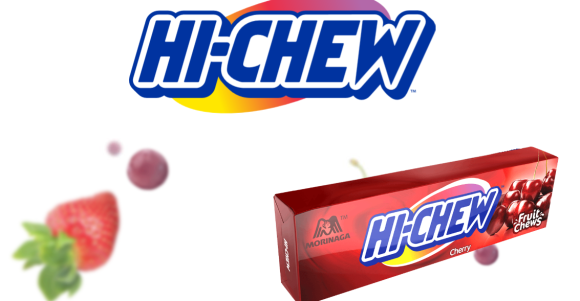
Every time I go back to the States to see my family, before hopping on the plane, I swing by the convenience store to pick up some treats for my nieces and nephew. I figure if I can’t do anything about being “Uncle Who Only Visits Once a Year,” then I’m at least going to be “Uncle Who Only Visits Once a Year, but Brings Candy!”
The stuff I get for them isn’t anything particularly fancy. A few pieces of melon bread, whatever the newest mix of matcha green tea and chocolate is, and maybe a few packs of fruity Hi-Chew candy. This year might be my last chance to score some easy points with that last one, though, since in 2015 the makers of Hi-Chew are opening a factory in the U.S. to satisfy America’s sweet tooth with Japanese candy.
This isn’t the first time a Japanese company has scored such a hit with its exports that it decides to move some production to an American site. Toyota, Nissan, and Honda all have plants in the U.S., and major Japan-headquartered video game developers have been setting up U.S. studios since two decades ago.
Hi-Chew isn’t as high-tech as those examples, but the chewable candies have joined the list of such overseas success stories. Manufacturer Morinaga made its first major push to sell the product in the U.S. in 2008, but didn’t make much progress in the beginning. The product was hard to come by unless you were shopping at a Japanese or other Asian specialty supermarket, and it’s likely the candy would have stayed in that small sector of the market if not for the unsolicited endorsement of professional baseball player Junichi Tazawa.
Tazawa, a relief pitcher, took a unique path to the Big Leagues. After going undrafted out of high school, the Yokohama-native spent a few years playing in a Japanese corporate league before joining the Boston Red Sox in 2008 and being part of the team’s 2013 World Series Championship.
Perhaps because of his lack of high-profile professional experience before coming to Boston, Tazawa was saddled with the job of making sure the team’s bullpen was stocked with chewing gum for players warming up. The Japanese transplant decided to make the snack mix international like the team’s roster, and also left out packs of Hi-Chew from his personal stash. These proved to be extremely popular with his American teammates, who had Tazawa scouring local Asian markets to procure enough for all the requests he was getting for more Hi-Chews.
Eventually unable to keep up with demand, Tazawa reached out to Morinaga, asking if the company could supply the Red Sox directly. Morinaga started doing so in 2012, and is now an official sponsor of the team, with Hi-Chew ads in Fenway Park and samples given out to visiting fans.
The extra publicity has propelled Hi-Chew’s popularity to new heights in the U.S., with 2013 sales double those of the previous year, and strong performance in 2014, too. With a distribution deal now in place with retailer Safeway and its 1,200 branches, Morinaga has decided to transition away from shipping Hi-Chew all the way from its factory in Taiwan, and 2015 will see the opening of a dedicated Hi-Chew factory in North Carolina.
In a way, this kind of internationalism is fitting for Morinaga, whose original founder, Tachiro Morinaga, travelled to America to study confectionary-making at the end of the 19th century. It’s a proud day for the company, and a happy one for Hi-Chew’s growing number of American fans. Really, it’s a win-win all around, unless you’re an expat who now needs to find some other cool candy to take home with you.
Source: Yahoo! Japan via Jin
Top image: Hi-Chew
Insert image: Wikipedia/Keith Allison

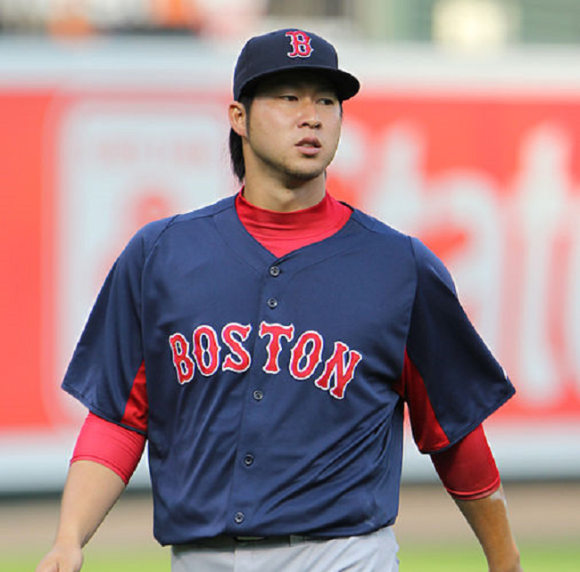
 International-hit candy Hi-Chew adds English to in-Japan logo, makes it bigger than the Japanese
International-hit candy Hi-Chew adds English to in-Japan logo, makes it bigger than the Japanese Hit Japanese candy Hi-Chew, famous for fruity taste, releases new flavor: Flavorless
Hit Japanese candy Hi-Chew, famous for fruity taste, releases new flavor: Flavorless RocketKitchen makes a giant Hi-Chew candy from over 1,400 Hi-Chew pieces!
RocketKitchen makes a giant Hi-Chew candy from over 1,400 Hi-Chew pieces! What does this Japanese candy have to do with the Red Sox? Quite a lot, actually
What does this Japanese candy have to do with the Red Sox? Quite a lot, actually Hi-Chew candies get revamped into ice cream sweet treats just in time for summer
Hi-Chew candies get revamped into ice cream sweet treats just in time for summer Saitama is home to the best strawberries in Japan that you’ve probably never even heard of
Saitama is home to the best strawberries in Japan that you’ve probably never even heard of Japan has only one airport named after a samurai, so let’s check out Kochi Ryoma【Photos】
Japan has only one airport named after a samurai, so let’s check out Kochi Ryoma【Photos】 Survey finds that one in five high schoolers don’t know who music legend Masaharu Fukuyama is
Survey finds that one in five high schoolers don’t know who music legend Masaharu Fukuyama is Starbucks Japan adds new sakura Frappuccino and cherry blossom drinks to the menu
Starbucks Japan adds new sakura Frappuccino and cherry blossom drinks to the menu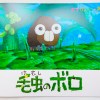 Boro the Caterpillar anime now showing at the Ghibli Museum in Tokyo 【SoraReview】
Boro the Caterpillar anime now showing at the Ghibli Museum in Tokyo 【SoraReview】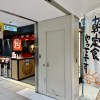 Tokyo Station’s perfect breakfast spot might just be this izakaya Japanese-style pub
Tokyo Station’s perfect breakfast spot might just be this izakaya Japanese-style pub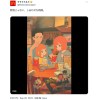 McDonald’s ad in Japan causes controversy overseas
McDonald’s ad in Japan causes controversy overseas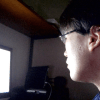 After eight years as a NEET, our reporter shares the one thing that helped him escape that life
After eight years as a NEET, our reporter shares the one thing that helped him escape that life Foreign tourists in Japan will get free Shinkansen tickets to promote regional tourism
Foreign tourists in Japan will get free Shinkansen tickets to promote regional tourism Japanese communities giving their skylines a spring clean and saying goodbye to power lines
Japanese communities giving their skylines a spring clean and saying goodbye to power lines The 10 most annoying things foreign tourists do on Japanese trains, according to locals
The 10 most annoying things foreign tourists do on Japanese trains, according to locals Starbucks Japan releases new sakura goods and drinkware for cherry blossom season 2026
Starbucks Japan releases new sakura goods and drinkware for cherry blossom season 2026 Is Sapporio’s Snow Festival awesome enough to be worth visiting even if you hate the snow? [Pics]
Is Sapporio’s Snow Festival awesome enough to be worth visiting even if you hate the snow? [Pics] Japan has trams that say “sorry” while they ride around town…but why?
Japan has trams that say “sorry” while they ride around town…but why? Tokyo Skytree turns pink for the cherry blossom season
Tokyo Skytree turns pink for the cherry blossom season Highest Starbucks in Japan set to open this spring in the Tokyo sky
Highest Starbucks in Japan set to open this spring in the Tokyo sky Japan’s new “Cunte” contact lenses aren’t pronounced like you’re probably thinking they are
Japan’s new “Cunte” contact lenses aren’t pronounced like you’re probably thinking they are Shibuya Station’s Hachiko Gate and Yamanote Line stairway locations change next month
Shibuya Station’s Hachiko Gate and Yamanote Line stairway locations change next month Yakuzen ramen restaurant in Tokyo is very different to a yakuza ramen restaurant
Yakuzen ramen restaurant in Tokyo is very different to a yakuza ramen restaurant Japan’s newest Shinkansen has no seats…or passengers [Video]
Japan’s newest Shinkansen has no seats…or passengers [Video] Foreigners accounting for over 80 percent of off-course skiers needing rescue in Japan’s Hokkaido
Foreigners accounting for over 80 percent of off-course skiers needing rescue in Japan’s Hokkaido Super-salty pizza sends six kids to the hospital in Japan, linguistics blamed
Super-salty pizza sends six kids to the hospital in Japan, linguistics blamed Starbucks Japan unveils new sakura Frappuccino for cherry blossom season 2026
Starbucks Japan unveils new sakura Frappuccino for cherry blossom season 2026 Take a trip to Japan’s Dododo Land, the most irritating place on Earth
Take a trip to Japan’s Dododo Land, the most irritating place on Earth Naruto and Converse team up for new line of shinobi sneakers[Photos]
Naruto and Converse team up for new line of shinobi sneakers[Photos] Is China’s don’t-go-to-Japan warning affecting the lines at a popular Tokyo gyukatsu restaurant?
Is China’s don’t-go-to-Japan warning affecting the lines at a popular Tokyo gyukatsu restaurant? Survey asks foreign tourists what bothered them in Japan, more than half gave same answer
Survey asks foreign tourists what bothered them in Japan, more than half gave same answer Japan’s human washing machines will go on sale to general public, demos to be held in Tokyo
Japan’s human washing machines will go on sale to general public, demos to be held in Tokyo Starbucks Japan releases new drinkware and goods for Valentine’s Day
Starbucks Japan releases new drinkware and goods for Valentine’s Day We deeply regret going into this tunnel on our walk in the mountains of Japan
We deeply regret going into this tunnel on our walk in the mountains of Japan Studio Ghibli releases Kodama forest spirits from Princess Mononoke to light up your home
Studio Ghibli releases Kodama forest spirits from Princess Mononoke to light up your home Major Japanese hotel chain says reservations via overseas booking sites may not be valid
Major Japanese hotel chain says reservations via overseas booking sites may not be valid Put sesame oil in your coffee? Japanese maker says it’s the best way to start your day【Taste test】
Put sesame oil in your coffee? Japanese maker says it’s the best way to start your day【Taste test】 No more using real katana for tourism activities, Japan’s National Police Agency says
No more using real katana for tourism activities, Japan’s National Police Agency says Drinkable Hi-Chew coming to a Japanese convenience store near you!
Drinkable Hi-Chew coming to a Japanese convenience store near you! Hi-Chew releases new Japanese School Lunch flavor to stimulate appetites and nostalgia
Hi-Chew releases new Japanese School Lunch flavor to stimulate appetites and nostalgia Chilled, green tea, sweet potato and more mark 40 years of Japan’s Hi-Chew candy
Chilled, green tea, sweet potato and more mark 40 years of Japan’s Hi-Chew candy Japanese candy Hi-Chew says a heartfelt, ridiculous goodbye as it retires Green Apple flavor【Vid】
Japanese candy Hi-Chew says a heartfelt, ridiculous goodbye as it retires Green Apple flavor【Vid】 Hi-Chew fruit candies re-invented in DIY food creations
Hi-Chew fruit candies re-invented in DIY food creations Do Hi-Chew-flavor Hi-Chews have a reason to exist?【Taste test】
Do Hi-Chew-flavor Hi-Chews have a reason to exist?【Taste test】 Ever struggled to get the last piece of confectionery out of a packet? Twitter may have the key
Ever struggled to get the last piece of confectionery out of a packet? Twitter may have the key Super Mario taking on a new platform: candy!
Super Mario taking on a new platform: candy! Japanese TV network makes multiple apologies for reporter chewing gum on air【Video】
Japanese TV network makes multiple apologies for reporter chewing gum on air【Video】 Japanese candy factory plays “thank you” constantly over speakers so its snacks will taste good
Japanese candy factory plays “thank you” constantly over speakers so its snacks will taste good Bontan Ame: the candy that survived 100 years of leaks, bombings, censorship, and floods
Bontan Ame: the candy that survived 100 years of leaks, bombings, censorship, and floods We tried 12 different gummy candies from a Japanese supermarket and found the most delicious one
We tried 12 different gummy candies from a Japanese supermarket and found the most delicious one Naomi Osaka appears inside fukubukuro lucky bag from famous Japanese candy retail chain
Naomi Osaka appears inside fukubukuro lucky bag from famous Japanese candy retail chain Go shopping with our Japanese reporter as he experiences Costco in the U.S. for the first time
Go shopping with our Japanese reporter as he experiences Costco in the U.S. for the first time One week of Pop-Tart breakfasts – Can a Japanese man fall in love with the U.S. breakfast icon?
One week of Pop-Tart breakfasts – Can a Japanese man fall in love with the U.S. breakfast icon?